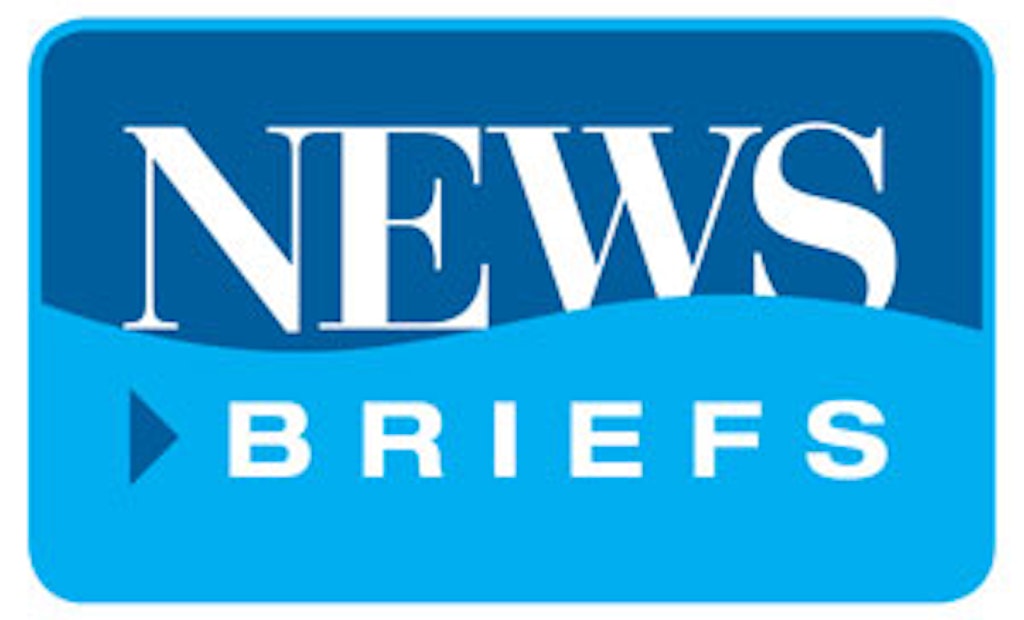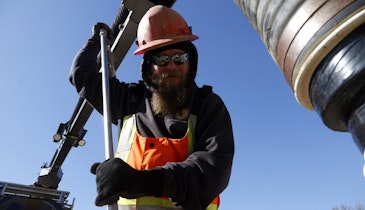Interested in Education/Training?
Get Education/Training articles, news and videos right in your inbox! Sign up now.
Education/Training + Get AlertsWater professionals from across the U.S. kicked off Water Week 2015 Sunday, April 12, in Washington, D.C., with the event continuing through April 18.
Water Week offers an opportunity for water professionals to connect with members of Congress and federal regulators to discuss the latest regulatory, legislative and legal developments impacting today’s water issues. Topics for this year’s Water Week include innovation, water utility financing, nutrients, affordability, water reuse and resource recovery, energy efficiency and renewal, water quality criteria, integrated planning, stormwater and more.
Water Week 2015 is organized by the National Association of Clean Water Agencies (NACWA), the Water Environment Research Foundation (WERF), the Water Environment Foundation (WEF) and WateReuse.
Baltimore Collects $1M in Unpaid Water Bills
The City of Baltimore has started down the long road of debt collecting, securing $1 million in unpaid water bills from nearly 1,500 customers since bolstering efforts to clear thousands of past-due bills, reports the Baltimore Sun.
Steps taken by the city to encourage payment from delinquent customers — approximately 25,000 who owe a combined $40 million in overdue bills — include sending water turn-off notices as well as shutting off service to those at least six months and $250 behind on their bills. In all, the city has about 400,000 water customers, half of which are located in Baltimore County.
As of April 7, service had been shut off to about 300 customers, with an expectation that, moving forward, another 150 per day would be disconnected, according to the article.
Source: Baltimore Sun
Researchers, Water Providers Launch Conservation Effort
As drought conditions continue to plague about a third of Texans, one group — the University Municipal Water Consortium — has stepped up to the plate to come up with new solutions for conserving water and tracking water usage across the state.
Researchers from Texas A&M University, the University of Texas at Austin and the University of Texas at San Antonio teamed up with more than 25 local, state and regional water providers to create the consortium and launch the $8 million research project.
According to the Texas Tribune, an Austin-based research and development nonprofit, Pecan Street Inc., announced the project last week.
“Growing populations and drought are threatening water supplies from California to Florida,” Brewster McCracken, the nonprofit’s CEO, said in a statement. “Our members have joined together to develop and test promising hardware and software solutions so we can ensure that utilities, communities and customers have access to data-driven information and cost-effective innovations.”
With Texas urban water use increasing nine times faster than all other uses combined, according to the Texas Water Development Board, the consortium decided to focus its efforts on cities and capitalize on new technologies. Equipment that measures water use in volunteers’ homes will be used in Arlington, Austin, East Rio Honda, El Paso, Houston Killeen and San Antonio. The data will be accessible through a smartphone app, so volunteers will be able to see their use and any detected leaks quickly and easily.
Estimates say that by 2016 the consortium will have gathered more customer data each month than all Texas utilities combined, reported to the Texas Tribune.
Sources: Texas Tribune, pecanstreet.org
WaterSmart Software Raises $7M
In the face of record drought and snowfall across the country, WaterSmart Software Inc. is extending aid to water utilities, helping them to manage and track this valuable natural resource.
The company raised $7 million, which was put towards developing software that collects and analyzes information from millions of water meters — data that can be used to predict future demand. The software also makes communication between water utilities and their customers more efficient.
Hal Harvey, former adviser to presidents Bush and Clinton on science, tech and environmental issues and current CEO of Energy Innovation, will join the WaterSmart board with the new funding round, according to The Wall Street Journal.
“We are entering a world of resource optimization rather than resource exploitation, and this requires more information and analytics to drive better informed decisions,” Harvey told WJS, describing the potential benefits for both utilities and households.
And with the high-quality technology available, it’s easier than ever to collect and share information.
“A lot of utilities are still thinking about one-size-fits-all public-service announcements and campaigns that can get their customers to care more about water quality and conservation,” says WaterSmart founder and board member Peter Yolles. “Nothing’s wrong with [those], but we have 21st century technology that can get customer education to a much higher level.”
WaterSmart reported that its systems have helped save more than 1 billion gallons of water to-date, and currently collect and analyze data from 2 million smart water meters in North America.
Source: Wall Street Journal






